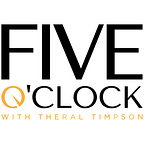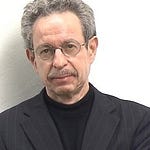Chapters:
0:00 Why Southern Utah?
5:00 How is genomics changing medicine?
11:03 New genomics center at Utah Tech
17:37 When should one get pharmacogenetics testing?
25:10 Impact on cancer care
33:32 Early cancer detection
36:42 What about diabetes and cardiology?
42:17 The future of genomics
Most of us have family and friends who have died from cancer. We also know many who survive it. Whenever there is a cancer diagnosis, we are left asking why. Is it lifestyle, is it family inheritance, or is it random mutations in the genes?
In fact, the study of our DNA is revolutionizing cancer treatment. Since sequencing the human genome in 2003, four areas where biologists have traced connections between our genotype and our phenotype have become meaningful in mainstream medicine: cancer, reproductive health, rare disease diagnosis and treatment, and pharmacogenetics, or matching the right drug to our genetic makeup.
My producer, Ayanna, and I have talked much about genomics on our other podcast, Mendelspod. That is its primary focus with an expert audience. Over there we call it the “genomics revolution” or the “Century of Biology.” Today we wanted to bring one of the superstars in the field of genomic medicine to Five O’Clock to discuss genomics and its impact on medicine and the average person. Howard McLeod has been named as the top-ranked pharmacogeneticist in the U.S. and No. 2 globally. He is a Professor of Biology and Medicine at the new Center for Precision Medicine and Functional Genomics at Utah Tech University in St. George, Utah.
Early in the program, Howard says, “Genomics is a bit of a crystal ball for an individual person, in terms of forecasting what is coming. It’s not perfect. There are all sorts of things that can happen that have nothing to do with your genome. But it does allow you to find some things much earlier than they would declare themselves naturally. Genomics now ranges from “I have cancer. What is this cancer, and how should we treat it? All the way back to, “I’m a young person. What things might I have in my future as I age?”
According to Howard, these are early days in genomic medicine. If this was a baseball game, Howard says, we’re in the third or fourth inning.
“We’re still pretty early on. We have the technology to know a lot more. I expect that ten or fifteen years from now, we won’t spend a lot of time talking about genomics. And the reason why is it will just be normal.”












